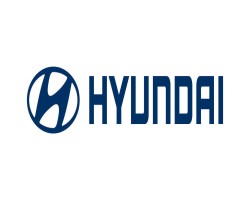What is Insurable Interest in Marine Policies?
Understanding this concept is vital for policyholders and insurers alike, as it defines the legitimacy of the insurance contract and ensures adherence to legal and ethical standards.

Marine insurance plays a critical role in safeguarding goods, vessels, and associated financial interests during maritime ventures. One of the foundational principles underpinning marine insurance contracts is insurable interest. Understanding this concept is vital for policyholders and insurers alike, as it defines the legitimacy of the insurance contract and ensures adherence to legal and ethical standards.
Defining Insurable Interest in Marine Insurance
Insurable interest in marine policies refers to the legal and financial relationship between the policyholder and the insured property or interest. It signifies that the policyholder has a legitimate stake in the preservation of the insured asset and would suffer financial loss if it were damaged or destroyed.
Without insurable interest, a marine insurance contract would be void, as it would lack the essential legal foundation. This requirement prevents speculative insurance and ensures that contracts serve genuine risk management purposes.
Key Elements of Insurable Interest
To establish insurable interest in a marine policy, several key elements must be satisfied:
1. Legal Ownership or Financial Stake
The insured party must have a recognized legal or financial interest in the subject matter of the insurance. This could include:
-
Shipowners: Who own the vessel and stand to lose its value.
-
Cargo Owners: Who have financial interests in the safe delivery of goods.
-
Charterers: Who lease vessels and bear financial responsibility during the charter period.
2. Potential for Financial Loss
The policyholder must demonstrate that they would suffer a financial loss if the insured asset were damaged, lost, or destroyed. For example:
-
A shipowner would face losses due to vessel damage.
-
A cargo owner would lose the value of goods in transit.
3. Timing of Insurable Interest
Insurable interest must exist at specific points in time to validate the insurance contract. For marine policies, this includes:
-
At the Time of Insurance Purchase: The policyholder must have insurable interest when the policy is taken out.
-
At the Time of Loss: Insurable interest must be present at the moment the loss occurs.
Examples of Insurable Interest in Marine Policies
Marine policies encompass a variety of scenarios where insurable interest applies:
For Shipowners
Shipowners insure their vessels to protect against damage, loss, or liability arising from maritime operations. Their insurable interest lies in preserving the value of their property and maintaining operational continuity.
For Cargo Owners
Businesses or individuals shipping goods via sea have insurable interest in their cargo. Any damage, theft, or loss during transit would directly impact their financial standing, making cargo insurance crucial.
For Freight Forwarders
Freight forwarders often act as intermediaries between shippers and carriers. Their insurable interest arises when they assume financial responsibility for goods during transportation.
For Lenders and Financial Institutions
Banks or financial institutions financing maritime ventures or assets may also have an insurable interest. They ensure their investment is protected against unforeseen losses.
Legal Framework Governing Insurable Interest
The Marine Insurance Act, 1906
In jurisdictions like the United Kingdom, the Marine Insurance Act, 1906, defines and governs insurable interest in marine insurance contracts. Key provisions include:
-
Section 5: that the insured must possess a legal or equitable interest in the insured subject matter.
-
Section 6: Prohibits wagering agreements or speculative insurance without genuine insurable interest.
International Guidelines
Globally, marine insurance practices adhere to similar principles to maintain uniformity and legitimacy in contracts.
Why Insurable Interest Matters in Marine Insurance
The concept of insurable interest serves several critical purposes:
1. Ensuring Contract Legitimacy
By requiring a genuine financial stake, insurable interest prevents speculative or gambling-like practices in insurance.
2. Promoting Ethical Practices
Insurable interest aligns insurance contracts with ethical principles, ensuring they serve legitimate risk management needs.
3. Preventing Fraud
The requirement reduces the risk of fraudulent claims by linking coverage to genuine financial stakes.
4. Protecting Insurers
Insurers benefit from this principle as it reduces moral hazard and ensures that policyholders have a vested interest in minimizing risks.
Common Challenges and Disputes
While insurable interest is a clear legal requirement, disputes can arise in certain situations:
Ownership Disputes
In cases where ownership of the insured asset is unclear, establishing insurable interest can become complicated.
Multiple Stakeholders
When multiple parties, such as shipowners, charterers, and cargo owners, have overlapping interests, determining the extent of insurable interest for each party may lead to disputes.
Timing Issues
If insurable interest is not present at the time of loss, the validity of the claim may be questioned, even if the policy was active.
Conclusion
Insurable interest is the cornerstone of marine insurance policy, ensuring that contracts are legitimate, ethical, and serve genuine purposes. By understanding and adhering to this principle, both insurers and policyholders can navigate the complexities of marine insurance with confidence and clarity.
What's Your Reaction?



















